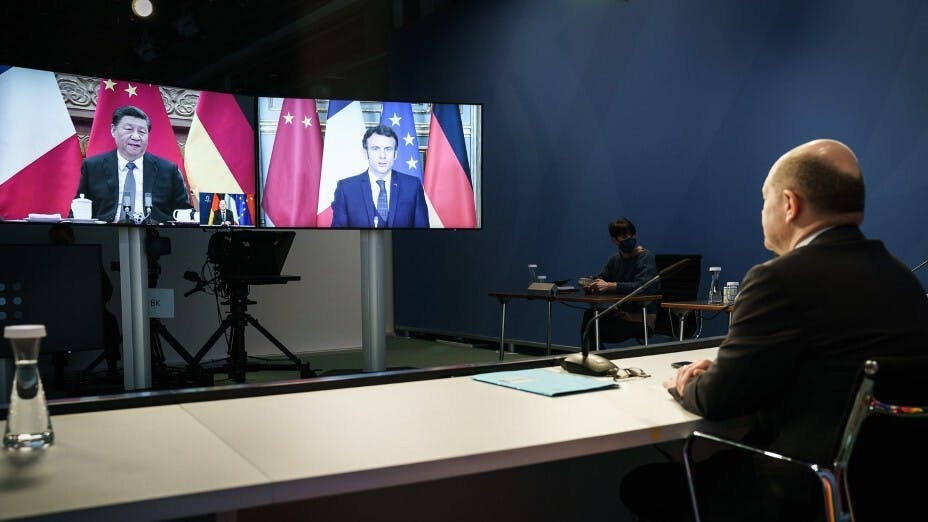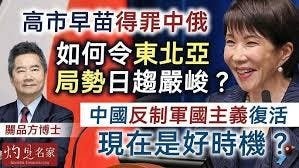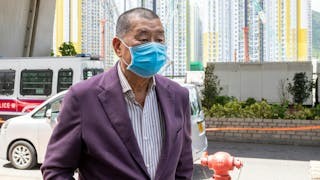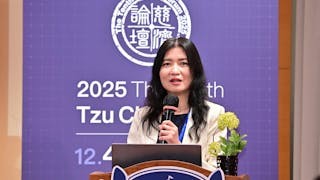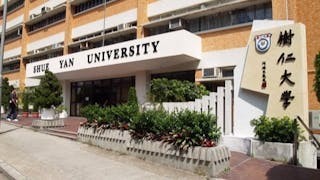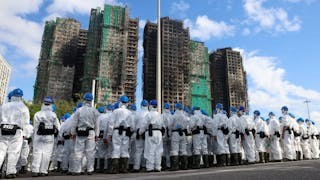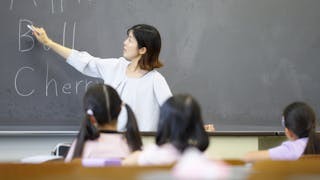自2月24日俄羅斯軍事入侵烏克蘭以來,中國政府對俄烏衝突的立場一直在演變。
2月25日,國家主席習近平與俄羅斯總統普京通電話,普京介紹了烏克蘭的歷史經緯,以及俄羅斯對烏克蘭採取特別軍事行動的情況和立場,表示美國和北約長期無視俄羅斯合理安全關切,一再背棄承諾,不斷向東推進軍事部署,挑戰了俄羅斯戰略底線。
習近平則指出,烏克蘭東部地區局勢急劇變化,引起國際社會高度關注。中方根據烏克蘭問題本身的是非曲直決定中方立場。習近平呼籲各國摒棄冷戰思維,重視和尊重各國合理安全關切,通過談判形成均衡、有效、可持續的歐洲安全機制。
習近平表示,中方支持俄方同烏方通過談判解決問題。中方關於尊重各國主權和領土完整、遵守《聯合國憲章》宗旨和原則的基本立場是一貫的。中方願同國際社會各方一道,倡導共同、綜合、合作、可持續的安全觀,堅定維護以聯合國為核心的國際體系和以國際法為基礎的國際秩序。
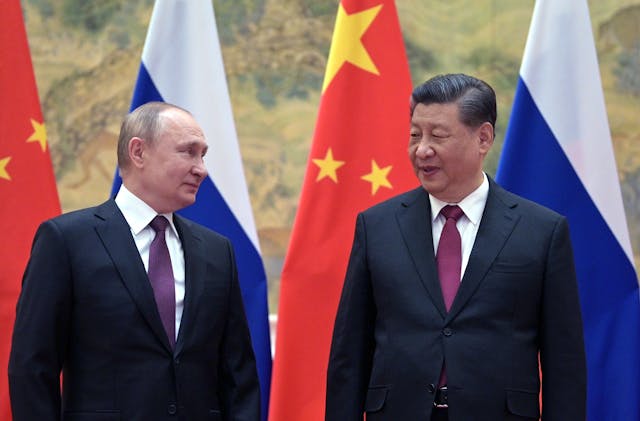
主張對話 不贊成動武及制裁
同日,國務委員兼外長王毅分別與英國外相卓慧思、歐盟外交與安全政策高級代表博雷利,以及法國總統顧問博納通電話,闡述中方對烏克蘭問題的立場。
首先,王毅表示,中方堅定主張尊重及保障各國的主權和領土完整,恪守《聯合國憲章》的原則;其次,中方倡議形成平衡、有效、可持續的歐洲安全機制;第三,中方不願意見到目前烏克蘭的局勢,認為當務之急是各方保持克制,避免事態繼續惡化甚至走向失控;第四,中方歡迎俄羅斯和烏克蘭盡快舉行直接對話談判,亦支持歐方與俄羅斯,就歐洲安全問題進行平等對話;第五,中方認為,聯合國安理會應當為解決烏克蘭問題發揮建設性作用,採取的行動應當為緊張局勢降溫,不贊成動輒授權動武及制裁。這5點構成了中國對俄烏衝突外交政策的基礎。
強調尊重各國主權和領土完整
3月7日,王毅強調,解決烏克蘭危機需要冷靜和理性。他強調必須堅持《聯合國憲章》的宗旨和原則,尊重和保障各國的主權和領土完整,並呼籲各國必須堅持通過對話談判,以和平方式解決爭端。
王毅表示,中方願繼續為勸和促談發揮建設性作用,也願在需要時與國際社會一道開展必要的斡旋。同時,王毅呼籲國際社會防止出現大規模的人道主義危機。
除了2月25日提到的5點外,王毅還為防止烏克蘭出現大規模人道主義危機提出6點倡議:一、人道主義行動必須遵守中立、公正原則,防止將人道問題政治化;二、全面關注烏克蘭的流離失所者,幫助其得以妥善安置;三、 切實保護平民,防止烏境內出現次生人道災害;四、保障人道援助活動順利、安全開展,包括提供快速、安全、無障礙的人道主義准入;五、確保在烏克蘭外國人安全,允許其從烏克蘭安全離開,並為其回國提供幫助;六、支持聯合國在對烏人道援助方面發揮協調作用,支持聯合國烏克蘭危機協調員的工作。王毅補充說,中國紅十字會將向烏克蘭提供緊急和人道主義物資。最後,他表達了中國對那些對從烏克蘭撤離的中國公民提供幫助的國家的感謝。
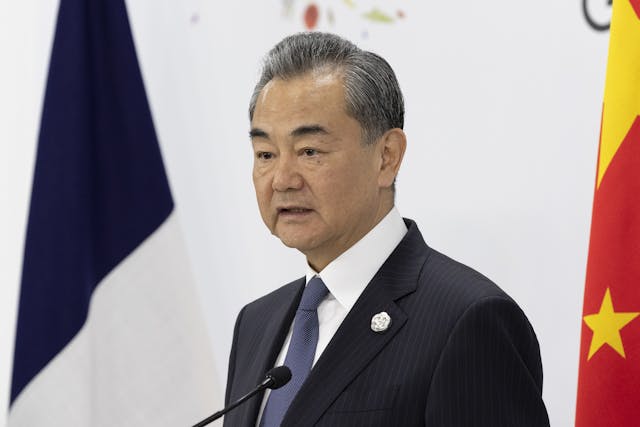
台灣與烏克蘭問題無可比性
同日,王毅強調,台灣問題與烏克蘭問題有本質區別,兩者沒有可比性。 他重申,台灣是中國領土不可分割的一部分,台灣問題完全是中國的內政,烏克蘭問題則是俄烏兩個國家之間的爭端。他批評有些人利用烏克蘭問題,不斷損害中國對台灣的主權和領土完整。
中方支持法德 推動構建歐洲安全框架
3月8日,國家主席習近平在同法國總統馬克龍和德國總理朔爾茨舉行視像峰會,表示要共同支持俄烏和談,推動雙方維護談判勢頭,克服困難談下去,談出結果、談出和平。
習近平強調,當前烏克蘭局勢令人擔憂,中方對歐洲爆發戰爭感到難過。習近平指出,中國堅持尊重各國主權和領土完整,充分遵守《聯合國憲章》原則,認真考慮各國正當安全關切的原則。
習近平呼籲避免緊張局勢進一步升級,同時讚揚法國和德國的斡旋努力。他強調,中方就向烏克蘭提供人道主義援助和物資,提出了6點倡議。然而,習近平補充說,有關制裁對全球金融、能源、交通、供應鏈穩定都會造成衝擊。因此,中方倡導「共同、綜合、合作、可持續的安全觀」,同時支持法德兩國為歐洲持久安全着想,推動構建均衡、有效、可持續的歐洲安全框架。習近平又表示,中方也樂見歐俄美及北約開展平等對話。
批評美報章散報虛假信息
3月9日,中國外交部發言人趙立堅批評一家美國報紙(按:指《紐約時報》)在烏克蘭問題上散布有關中國的虛假信息。該報在沒有任何具體證據的情況下,指中國「事先知曉」俄羅斯在烏克蘭的軍事行動。
3月11日,中國國務院總理李克強表示,應當盡最大努力支持俄烏雙方克服困難進行談判,談出和平的結果,中方支持和鼓勵一切有利於和平解決危機的努力。
李克強在全國人大會議結束後的新聞發布會上發表講話。與王毅一樣,李克強表示,中方願與國際社會一道,為重返和平發揮積極的作用。

李克強坦言 制裁衝擊全球經濟復甦
李克強形容烏克蘭局勢「令人擔憂」,並說,當務之急要避免緊張局勢升級甚至失控。他呼籲俄羅斯和烏克蘭保持最大限度的克制,同時防止烏克蘭發生大規模人道主義危機。與習近平一樣,李克強補充說,有關對俄羅斯的制裁,會對世界經濟復甦造成衝擊。
對於中國在俄烏衝突中立場變化,仔細分析可歸納出幾個特點:
首先,中國官方媒體沒有使用「入侵」一詞來形容俄羅斯在烏克蘭的軍事行動,這表明中國官方傾向於採取更加中立的立場,尤其是在中國重申尊重包括俄羅斯在內各國主權和領土完整應該得到尊重,以及各國合理安全關切應得到重視。
其次,中國官方認為有關制裁會衝擊世界經濟的觀點,可以解釋為相對中立的立場,儘管一些觀察家認為這種立場略微偏向俄羅斯。
第三,中國一直呼籲各方進行對話、談判和和平解決──這是習近平、李克強和王毅一致的表態,也是中方堅持中立的立場。
第四,王毅說烏克蘭的情況不能與台灣相提並論是很重要的,因為台灣從歷史上講,自古以來是中國大陸領土的一部分。但一些台獨分子和一些外國分析人士卻抓住烏克蘭危機的契機,誇大所謂「迫在眉睫」的大陸對台灣的軍事威脅。那些提出「中國威脅論」的人忽視了北京對台政策中軟(統一戰線和社會經濟呼籲台灣與大陸融合)和硬(武力作為最後手段)工具的結合使用。
中方堅持中立 不希望局勢失控
第五,外交部發言人趙立堅對美國傳媒的批評很重要,因為中國在2月24日之後立即撤離中國公民。任何對中國進行無端指責的外國新聞報道,都可能產生意想不到的後果,影響到從烏克蘭撤離的中國公民的人身安全。
總之,中國在烏克蘭危機上的官方立場,在2月24日俄羅斯軍事入侵烏克蘭後迅速演變。基本上,中國對烏克蘭危機採取了相對中立的立場,強調對話、談判及和平解決的必要性 ,並重申防止大規模人道危機的重要性,目的只是希望俄烏衝突能夠而且將會得到控制,而不是在未來幾個月內進一步失控。
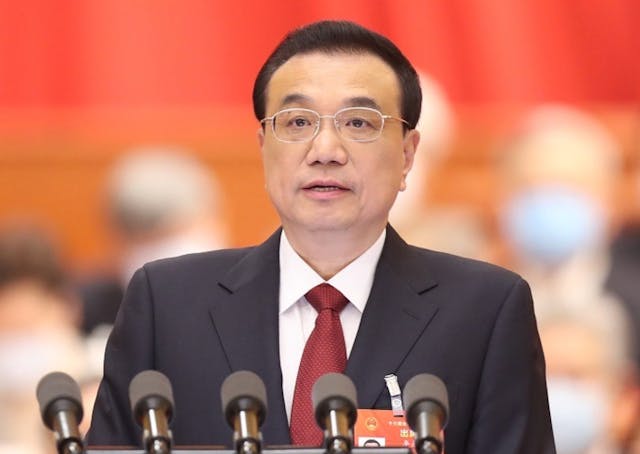
The Evolution of China’s Position on the Russian-Ukrainian Conflict
Since the Russian military invasion into Ukraine on February 24, the position of the government of the People’s Republic of China (PRC) on the Russian-Ukraine conflicts has been evolving.
On February 25, Chinese President Xi Jinping and Russian President Vladimir Putin had a phone conversation in which Putin introduced the historical context of Ukraine and Russia’s military operation there. Putin said that the US and NATO had ignored Russia’s legitimate security concerns and pushed their military eastward into Ukraine, thereby challenging Russia’s strategic bottom line.
In response, President Xi said that the sudden changes in Ukraine’s situation raised international attention, and that China decides its position “based on the merits of the Ukrainian issue itself.” Xi called for countries to drop their Cold War mentality, to respect the security concerns of various countries, and to engage in security dialogue and negotiation.
The PRC side, according to Xi, supports the Russian side to negotiate with the Ukrainian side, and the Chinese government is consistent in its respect of the sovereignty and territorial integrity of all countries. Xi added that China is ready to work with the international community to realize the concept of common, comprehensive, and sustainable security, to uphold the international system with the UN at its core, and to support the international order based on international law.
On the same day, the PRC State Councillor and Foreign Minister Wang Yi delineated the Chinese position on the Ukrainian issue during his phone talks with the British Foreign Secretary Liz Truss, the European Union’s High Representative for Foreign Affairs and Security Policy Josep Borrell, and the French diplomatic counsellor Emmanuel Bonne.
Firstly, according to Wang, China firmly respects and safeguards the sovereignty and territorial integrity of all countries and abides by the principles of the UN Charter. Secondly, China advocates the concept of common, comprehensive, cooperative, and sustainable security. Thirdly, China did not want to see the evolution of the Ukrainian issue in a conflictual way.
Fourthly, the PRC side supports and encourages all diplomatic efforts conducive to a peaceful settlement of the Ukrainian crisis. Fifthly, China believes that the UN Security Council plays a constructive role in resolving the Ukrainian crisis because regional peace, stability and security of all countries are the priorities. These five points form the foundation of the PRC’s foreign policy toward the Russian-Ukraine conflicts.
On March 7, Wang Yi stressed that calmness and rationality are necessary to resolve the Ukrainian crisis. Emphasizing the commitment to the UN Charter’s purposes and principles, he repeated that China respect the sovereignty and territorial integrity of all countries and appealed to the need for dialogue, negotiation, and peaceful means for resolving disputes among countries.
China is willing to play a constructive role in facilitating dialogue for peace and to work with the international community to mediate international disputes. At the same time, Wang appealed to the international community to prevent a large-scale humanitarian crisis.
Apart from the five points that Wang had mentioned on February 25, he added six points in preventing a humanitarian crisis in Ukraine: (1) efforts should be made to ensure that humanitarian operations should abide by the principle of neutrality and impartiality and avoid politicization; (2) attention should be given to the displaced people in and from Ukraine and shelter should be provided for them; (3) the protection of civilians and the prevention of secondary humanitarian disasters; (4) efforts should be made to guarantee safe, smooth, rapid and unimpeded humanitarian activities and access; (5) the safe departure and safety of foreign nationals in Ukraine should be ensured; and (6) support should be given to the UN’s role of coordinating humanitarian work.
Wang added that the Red Cross Society of China would provide emergency and humanitarian supplies to Ukraine. Finally, he expressed the PRC’s gratitude to those countries which offered support in evacuating Chinese nationals from Ukraine.
On the same day, Wang Yi emphasized that the Taiwan issue is different in nature from the Ukrainian issue and that the two are not comparable. He reiterated that Taiwan is an inalienable part of China’s territory, but the Ukrainian issue stemmed from the contention between Ukraine and Russia. He criticized some people for using the Ukrainian issue to keep undermining Chinese sovereignty and territorial integrity over Taiwan.
On March 8, during a video summit with French President Emmanuel Macron and German Chancellor Olaf Scholz, President Xi Jinping urged Russia and Ukraine to have joint peace and he asked the two sides to maintain the momentum of negotiations, overcome difficulties, and bring about peaceful outcomes.
Xi said that the Ukrainian situation was “worrisome”, and the PRC side was saddened by the outbreak of war in Europe. The PRC, according to Xi, maintains the principle that all countries’ sovereignty and territorial integrity must be respected, that the principles of the UN Charter must be fully observed and that the legitimate security concerns of all countries must be considered seriously. Xi called for the prevention of the tense situation from being escalated further, while commending the mediation efforts by France and Germany.
He stressed that China put forward a six-point initiative on humanitarian assistance and supplies in Ukraine. However, Xi added that sanctions would have impacts on global finance, energy, transportation, the supply chain’s stability, and the global economy. As such, China advocates “a vision of common, comprehensive, cooperate e and sustainable security” while supporting France and Germany to promote a balanced, effective, and sustainable European security framework for European security. Finally, President Xi expressed China’s hope to see “equal-footed dialogue” among the European Union, Russia, the US, and NATO.
On March 9, PRC Foreign Ministry spokesperson Zhao Lijian criticized an American newspaper for disseminating disinformation about China on the Ukrainian issue. The newspaper claimed without any concrete evidence that China had so-called “prior knowledge” of Russia’s military operation in Ukraine.
On March 11, Chinese Premier Li Keqiang remarked that utmost efforts should be made to support Russia and Ukraine in their ceasefire negotiations, that the PRC encourages efforts beneficial to a peaceful settlement. Li delivered his remarks at a press conference at the end of the National People’s Congress meeting. As with Wang Yi, Li said that China is willing to work with the international community to bring about the return of peace in Ukraine.
Li described the situation in Ukraine as “disconcerting,” adding that the urgent task is to prevent the situation from getting out of control. He called for restraint from Russia and Ukraine while calling for the avoidance of a humanitarian crisis in Ukraine. As with President Xi, Premier Li added that the sanctions imposed on Russia would hurt the economic recovery of the world.
A careful analysis of the evolution of the PRC’s position on the Russian-Ukrainian conflicts shows several characteristics. First, the official Chinese media does not use the term “invasion” to refer to the Russian military operation in Ukraine, demonstrating the PRC’s official preference of adopting a more neutral position, especially as China reiterates that it respects the security concerns and sovereignty claims of all countries.
Second, the official Chinese view of sanctions as hurting the world economy can be interpreted as a relatively neutral position, although some observers have interpreted this stance as slightly tilted toward Russia. Third, the PRC consistently appeals to all sides for dialogue, negotiation and peaceful settlement – a position seen in the remarks of President Xi, Premier Li and Foreign Minister Wang and a stance showing the persistence of the Chinese neutrality.
Fourth, Wang Yi’s remark that Ukraine’ situation cannot be compared with that of Taiwan is an important one, for Taiwan has been historically speaking and traditionally a part of mainland Chinese territory.
But some Taiwan separatists and some foreign analysts have grasped the opportunity of the Ukrainian crisis to exaggerate the so-called “imminent” PRC’s military threat to Taiwan. Those people who articulate the “China threat” theory have ignored the combined use of soft (united front and socio-economic appeals to Taiwan for integration with the mainland) and hard (military force as a last resort) instruments of Beijing’s policy toward Taiwan.
Fourth, Foreign Ministry spokesman Zhao Lijian’s criticism of the US media was important, for China was evacuating Chinese nationals immediately after February 24. Any foreign news reports making unfound accusations on China could have the unintended consequence of affecting the safety of the Chinese nationals who were evacuated from Ukraine.
In conclusion, the official position of China on the Ukrainian crisis has evolved quickly and immediately after the Russian military invasion of Ukraine on February 24. Basically, China has been adopting a relatively neutral position toward the Ukrainian crisis, emphasizing the need for dialogue, negotiation and peaceful settlement, and reiterating the importance of preventing a humanitarian crisis. It is only hoped that the Russian-Ukrainian conflict can and will be contained rather than being spiralled out of control further in the coming months.
原刊於澳門新聞通訊社(MNA)網站,本社獲作者授權轉載。



